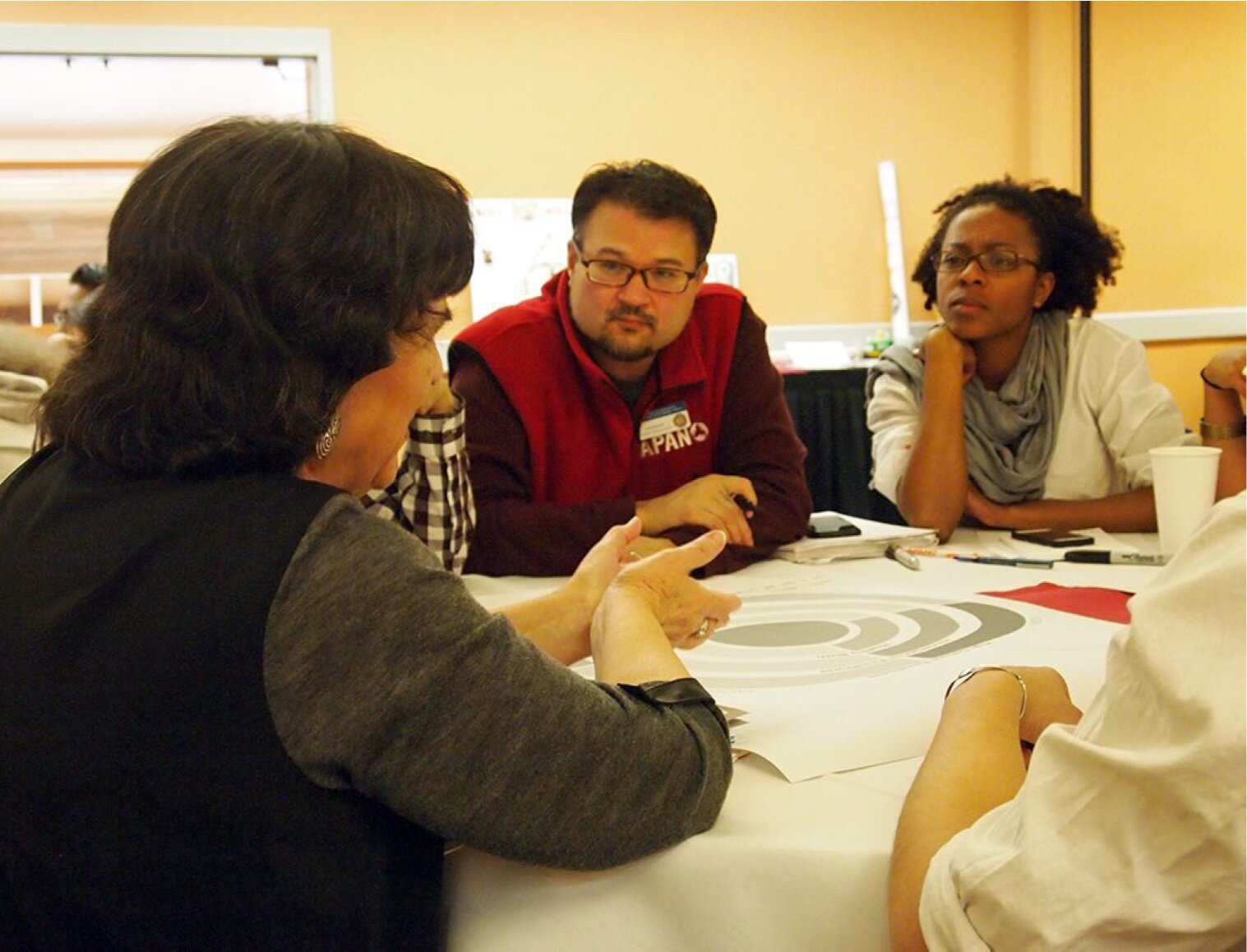The Origins of the Civic Health C4 Power Program
Written by Jesse Beason, NWHF President & CEO
Senator Mark Hatfield
Senator Mark Hatfield looms large over much of recent Oregon history. He is known for his steadfast commitment against war of all kinds, his strong moral compass, and his ability to bridge across differences. Senator Hatfield also knew that health stems from so many more parts of our society than healthcare—and that our collective prosperity and safety depended on equal access to all of them.
So it is fortuitous that Senator Hatfield was our first board chair. His ethos and his foresight were instrumental in our founding spirit—one I would like to hope we’re carrying on some 27 years later. Indeed, the seed for the Civic Health C4 Power Program, along with plenty of the work we’ve supported through our grant programs during my last decade here can be traced back to the ground he tilled during our founding.
It’s always dicey to play the game of telephone, but we have it on good authority that Senator Mark Hatfield was key in the foundation’s formation as a social welfare nonprofit—a.k.a. a 501(c)(4) organization. (We are a 501(c)(3) organization, too.) This means that NWHF can support more advocacy, lobbying and democracy than most foundations.
For many years and for a host of reasons, we didn’t often support communities' ability to lobby and elect people. For one, few community-led 501(c)(4)s existed in Oregon and SW Washington, so we didn’t have many options for 501(c)(4)-specific grantmaking. And we were slower to embrace grantmaking that not only recognized that it is mostly public policy that drives health, but that those facing the most barriers to health have to help lead policymaking.
Healthy Beginnings+Healthy Communities grantees having a conversation about the Health Compass.
It took some outside pressure for us to get there. It started in 2014, when we introduced our Healthy Beginnings+Healthy Communities initiative. This included our “Health Compass”—a dashboard with milestones for children’s health. Some examples of the milestones: mom’s dental health, developmental screening at third birthday, connection to something larger than self. We shared the Health Compass at a series of information sessions around our region, and then in 2015 we asked our grantees to fill in blank Health Compasses with their own milestones.
It quickly became clear that community-led organizations were looking for something different. They were looking to get to the root of poor health and health inequities. They wrote in milestones like “culturally-specific services to prepare parents,” “all children have access to healthcare,” and “access to safe places to play and congregate.” They told us flat out: your goal is not our goal.
So NWHF had to change our goal. When we announced the Healthy Beginnings+Healthy Communities grantees in 2016, our goal had shifted to “Building Power for Kids and Families.” (A similar shift happened over the lifetime of the Kaiser Permanente Community Fund.) We went from workshops on Adverse Childhood Experiences (ACES) during HB+HC’s planning year to trainings on the differences between 501(c)(3)s, (c)(4)s, and PACs and canvassing together at HB+HC convenings by our last year.
HB+HC grantee EUVALCREE visits the Oregon State Capitol
We offered HB+HC grantees the option to request 501(c)(4) funding alongside 501(c)(3) funding. In 2016, just one group received 501(c)(4) funding. In 2020, five out of eight received 501(c)(4) funds. Over the four years of HB+HC, grantees contributed to some incredible wins, including Cover All Kids, Reproductive Health Equity, Paid Family Leave and more.
Communities can’t achieve health when they don’t have a voice in the decisions that affect their lives. By 2020, Northwest Health Foundation knew that communities deserved all the tools in the toolbox to claim that voice. We launched the C4 Power Program to provide more of those tools. That includes 501(c)(4) resources—resources we wouldn’t have if it weren’t for Senator Mark Hatfield’s foresight and steadfast belief in health and democracy.
The C4 Power Program wraps up at the end of 2024. Over the next few months, we’re excited to share what grantees have learned and accomplished, what NWHF has learned, and what comes next. Stay tuned!



